JUNGIAN & POST-JUNGIAN
CLINICAL CONCEPTS
A 12-month online certificate course on key concepts of Jungian theory and clinical application.
This course is aimed at psychotherapists, psychologists, counsellors, social workers, coaches, and those working in the mental health and wellness field, wishing to understand the fundamentals of Jungian and post-Jungian psychology in clinical practice. This is a unique focused and in-depth learning opportunity in Jungian and post-Jungian theory and clinical application, with a global faculty of senior Jungian clinicians and academics.
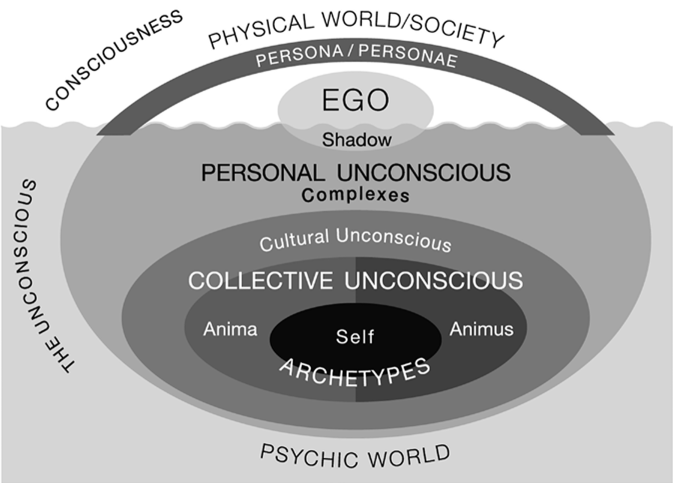
The psychotherapist is not just working for this particular patient, but for himself as well and his own soul, and in so doing he is perhaps laying an infinitesimal grain in the scales of humanity’s soul. Small and invisible as this contribution may be, it is yet an opus magnum.
(Carl Gustav Jung)
COURSE OVERVIEW
Course Starts 1 July 2023
Course Duration: 12 Months
Four Semesters focusing on a classic and current Jungian themes. Each Semester will include four lectures.
Semester 1: The Therapeutic Relationship – July and August
Semester 2: Archetypes of the Collective Unconscious and Individuation – October and November
Semester 3: Relationships, Gender and Ecopsychology – January and February
Semester 4: Jung and the Arts, the Imaginal and Spirituality – April and May
These modules include:
* Access to ‘Jung Unplugged’ – a comprehensive lexicon of Jungian Concepts.
* A 2-hour webinar with the course presenter, a formal lecture and an extended Q&A. These webinars are presented live and recorded for those unable to make the live webinar.
* Essential reading, set by the module presenter and made available as part of the programme reading pack.
* A self-reflective application for each module.
* Access to a student forum to download the learning material, complete your questionnaires, post applications and questions and interact with other members of the international student body.
Course process per monthly module:
* Access and download your reading pack for the Semester.
* Live lecture that is recorded for students who cannot attend.
* Work through Applications provided to deepen you personal experience and understanding of the module content.
* Complete a 15 question multiple choice questionnaire – Only required should you wish to receive CPD- Continuing Professional Development Points/ CEU – Continuing Education Units.
The course fee includes:
* Webinars
* Course materials
* Access to the student forum
Time requirement:
You will need a total of six to eight hours per month. All studying can be done in your own time, with the exception of the webinar, which happens at a fixed time – once a month on a Saturday. The webinar is also recorded, should you be unable to make the live broadcast.
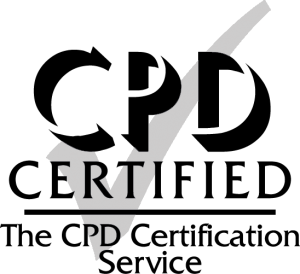 Accreditation:
Accreditation:
This course is certified with 84 CPD’s.
PLEASE NOTE
This online course is aimed students from all over the world, those working with human relations, welfare, emotional growth and development and spiritual directions. Specifically at those in the psychotherapeutic field: clinicians, psychotherapists, social workers, counsellors and psychologists, wishing to either be introduced to or deepen their existing knowledge of Jungian psychology.
NB. The course is not a formal training or accreditation as a Jungian analyst. It is offered as continuing professional development for practising psychotherapists. In terms of the number of CEUs offered for the course, you will need to check with your local accreditation body.
For the full syllabus, module descriptions and faculty information see below.
ETHOS
The Centre for Applied Jungian Studies exists to promote the research, learning and dissemination of depth psychology and studies, with a focus on Jungian psychology, in a non-linear, non-traditional, fashion. Utilising disruptive technologies the Centre delivers the concepts and applications, developed within the framework of depth psychology, to a wider audience than has historically been given access to these ideas and tools. This approach reflects the global paradigm shift to learning being made more widely and democratically accessible. This is facilitated in part by the non-localisation opportunities for learning created by the WWW, and the radical evolution and sophistication of communication platforms over the last two decades. This aspiration maintains the highest regard for the value and integrity of depth psychological theory and practice. It acknowledges the debt owed to the pioneers of depth psychology and their legacy, as well as the tireless work of the clinicians and scholars who have furthered the field of study over the last century.
The Centre for Applied Jungian Studies is committed to excellence in research, teaching and practice.
‘Jungian and post-Jungian Clinical Concepts’ was inspired by the challenge presented by the Jungian scholars and clinicians at the ‘Spectre of the Other in Jungian Psychology,’ an International Association of Jungian Studies conference that took place in Cape Town in 2017. Where, the urgent need to reach those previously excluded from the teaching and ideas of Jungian psychology, be it for reasons of location, economics or historical prejudices, was unequivocally sounded. In its own modest way, this course sets out to achieve that. By virtue of offering top-class tuition in Jungian psychotherapy, outside of its traditional setting, being non-localised (online), and a tiered fee structure, the aim is explicitly to democratise the learning opportunities offered by Jungian psychology, broaden the reach of these tools and to be as inclusive as possible.
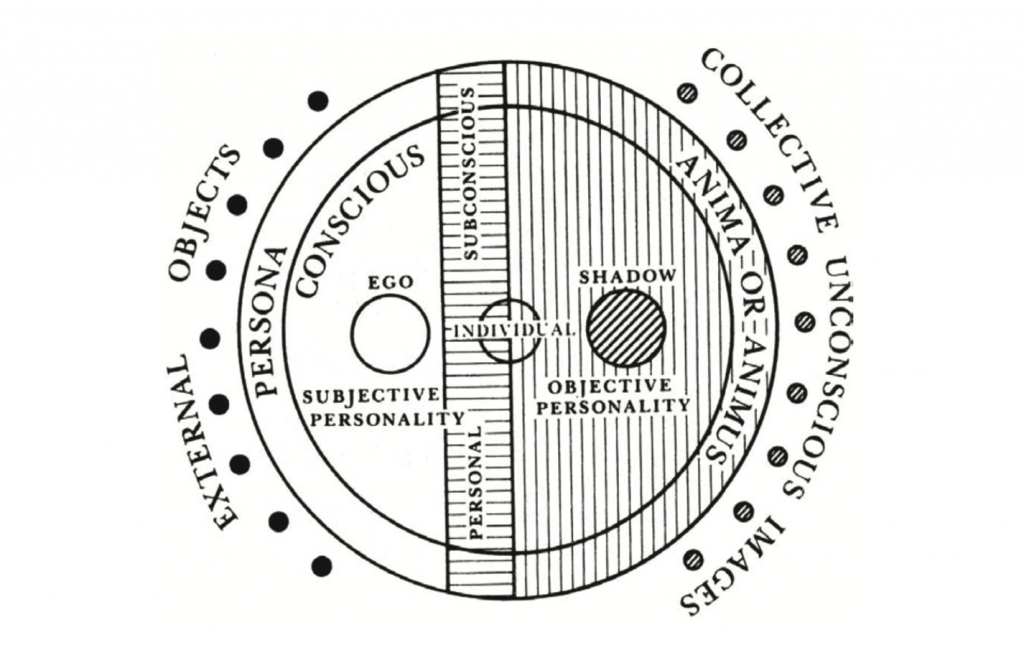
SEMESTER 1
The Therapy Relationship
8 July 2023 – Andrew Samuels
The Infant relationship to Objects
22 July 2023 – Sue Austin
Interpretation in Jungian Analysis – Art and Technique
5 August 2023 – Mark Winborn
Ego, Shadow and the Four Stages of Transformation
19 August 2023 – Stephen Farah
SEMESTER 2
Individuation within the interactive field: Jungian clinical reflections
7 October 2023 – Mark Saban
Theatres of Individuation
21 October 2023 – Paul Attinello
Cultural Complexes in the Life of Individuals, Groups and Nation States
4 November 2023 – Tom Singer
Social and Political Issues (race): Cultural Complexes
18 November 2023 – Ruth Williams
Archetypes and the Collective Unconscious
Bonus Lecture – Mark Saban
SEMESTER 3
Imagination, body and gender in Jungian and Post-Jungian Theory
6 January 2024 – Valeria Kierbel
Is Jung Queer?
20 January 2024 – George Taxidis
Container-contained: Thinking with Jung about the adult couple relationship
3 February 2024 – David Hewison
Ecopsychology
17 February 2024 – Mary-Jayne Rust
SEMESTER 4
Jung and the Arts
6 April 2024 – Roula-Maria Dib
Jungian Film Studies: Movies, Clients and Therapists
20 April 2024 – Luke Hockley
Dreams and Active Imagination
4 May 2024 – Verena Kast
Spirituality in Jungian Psychology: Theory and Practice
18 May 2024 – Murray Stein
This course will start on the 1st of July 2023.
Registration now closed.
Please email anja@appliedjung.com for more information.
PROGRAM FACULTY
Stephen Farah (HOD)
 Stephen Farah, MA, is the co-founder and head of learning and research at The Centre for Applied Jungian Studies South Africa. He is the current co-Chair of the International Association of Jungian Studies. Stephen holds an honours degree in analytical philosophy from the University of the Witwatersrand and a Master’s degree in Jungian and Post Jungian Studies from the University of Essex. Stephen’s areas of interest include psychoanalysis, film, the philosophy of language, consciousness, individuation and futurism. His paper ‘True detective and Jung’s four steps of transformation’ was published in The Routledge International Handbook of Jungian Film Studies. He is currently compiling and editing (with co-editor Marybeth Carter) an anthology of papers for ‘The Specter of the Other: crises and opportunity‘.
Stephen Farah, MA, is the co-founder and head of learning and research at The Centre for Applied Jungian Studies South Africa. He is the current co-Chair of the International Association of Jungian Studies. Stephen holds an honours degree in analytical philosophy from the University of the Witwatersrand and a Master’s degree in Jungian and Post Jungian Studies from the University of Essex. Stephen’s areas of interest include psychoanalysis, film, the philosophy of language, consciousness, individuation and futurism. His paper ‘True detective and Jung’s four steps of transformation’ was published in The Routledge International Handbook of Jungian Film Studies. He is currently compiling and editing (with co-editor Marybeth Carter) an anthology of papers for ‘The Specter of the Other: crises and opportunity‘.
Prof Andrew Samuels (Programme Consultant)
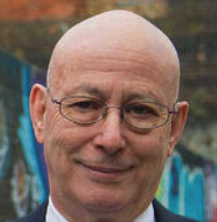 Andrew Samuels is Professor of Analytical Psychology at the University of Essex and a Jungian analyst in practice in London. He has been referred to as ‘the most celebrated of today’s Jungian analysts’ (in American Imago). He is a former Chair of the UK Council for Psychotherapy. His many books have been translated into 21 languages and include the ground-breaking Jung and the Post-Jungians (1985), A Critical Dictionary of Jungian Analysis (1986), The Father: Contemporary Jungian Perspectives (1986), Psychopathology: Contemporary Jungian Perspectives (1989), and Persons, Passions, Politics, Psychotherapy: Selected Works of Andrew Samuels (2015). For more information visit https://www.andrewsamuels.com/.
Andrew Samuels is Professor of Analytical Psychology at the University of Essex and a Jungian analyst in practice in London. He has been referred to as ‘the most celebrated of today’s Jungian analysts’ (in American Imago). He is a former Chair of the UK Council for Psychotherapy. His many books have been translated into 21 languages and include the ground-breaking Jung and the Post-Jungians (1985), A Critical Dictionary of Jungian Analysis (1986), The Father: Contemporary Jungian Perspectives (1986), Psychopathology: Contemporary Jungian Perspectives (1989), and Persons, Passions, Politics, Psychotherapy: Selected Works of Andrew Samuels (2015). For more information visit https://www.andrewsamuels.com/.
Thomas Singer M.D.
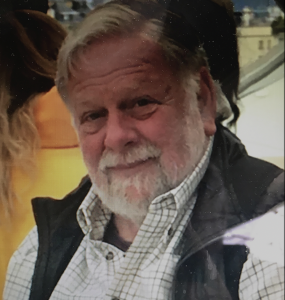
Thomas Singer, MD is a psychiatrist and Jungian psychoanalyst who trained at Yale Medical School, Dartmouth Medical School, and the C.G. Jung Institute of San Francisco. He is the author and editor of many articles and books, including a series of books on cultural complexes in Australia, Latin America, Europe, Southeast Asia, and the United States. Cultural Complexes and the Soul of America won the IAJS award for Best Edited Book of 2020. In addition, Dr. Singer has co-edited a series of books on Ancient Greece/Modern Psyche. He serves on the Board of ARAS (Archive for Research into Archetypal Symbolism) and has edited ARAS Connections for many years.
Roula-Maria Dib

Roula-Maria Dib (PhD, University of Leeds) is an award-winning literary scholar, poet, and editor whose research interests include literature, creative writing, and Jungian psychology. She is the winner of the British Council’s Alumni Awards 2021-2022 for the Culture and Creativity category in the UAE and a recipient of the AUD Provost’s Award for Outstanding Literary Achievement 2020; her book, Jungian Metaphor in Modernist Literature (Routledge, 2020) was shortlisted as a finalist for the International Association for Jungian Studies book awards, and some poems from her collection, Simply Being (Chiron Press, 2021) have been nominated for the Pushcart Prize. Roula-Maria is also the founding editor of literary and arts journal, Indelible, and creative producer of literary event series, Indelible Evenings, as well as Psychreative, a virtual salon for researchers, artists, and writers with a background in Jungian psychology. Her MOOC, “Why Online Creative Communities Matter”, is featured on Academia.edu. She is currently a professor of English at the American University in Dubai and member of The Poetry Society, the Royal Society of Literature, the British Association for Modernist Studies, the Scientific Committee of the Universale Biblion Series, and the International Association for Jungian Studies, and the Jungian Society for Scholarly Studies.
Dr Sue Austin
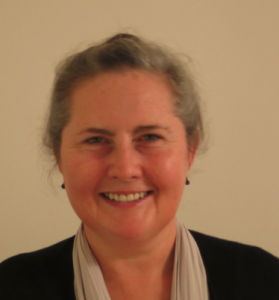 Sue Austin, Ph.D. and member ANZSJA, works in private practice in Sydney and is a training analyst with the Australian and New Zealand Society of Jungian Analysts. She specializes in working with adults who have eating disorders and/or disorders of the self (i.e., people whose experience of subjectivity is abject) and her practice comprises general analytic work with adults and supervision of clinicians in Australia and internationally. Sue has run numerous clinical workshops and seminars in Australia, New Zealand, the UK, Europe and the USA, and has published several clinical papers and a book. http://www.sueaustin.net.au/
Sue Austin, Ph.D. and member ANZSJA, works in private practice in Sydney and is a training analyst with the Australian and New Zealand Society of Jungian Analysts. She specializes in working with adults who have eating disorders and/or disorders of the self (i.e., people whose experience of subjectivity is abject) and her practice comprises general analytic work with adults and supervision of clinicians in Australia and internationally. Sue has run numerous clinical workshops and seminars in Australia, New Zealand, the UK, Europe and the USA, and has published several clinical papers and a book. http://www.sueaustin.net.au/
Dr Murray Stein
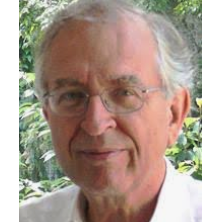 Murray Stein, Ph.D. is a Jungian psychoanalyst practicing in Zurich, Switzerland. He is a former president of the IAAP and is a training and supervising analyst at ISAP Zurich. His books include Jung’s Treatment of Christianity (1985), In MidLife (1983), Jung’s Map of the Soul(1998), Minding the Self (2014), Outside Inside and All Around (20170 and most recently The Bible as a Dream (2018). For more information visit his website http://murraystein.com/.
Murray Stein, Ph.D. is a Jungian psychoanalyst practicing in Zurich, Switzerland. He is a former president of the IAAP and is a training and supervising analyst at ISAP Zurich. His books include Jung’s Treatment of Christianity (1985), In MidLife (1983), Jung’s Map of the Soul(1998), Minding the Self (2014), Outside Inside and All Around (20170 and most recently The Bible as a Dream (2018). For more information visit his website http://murraystein.com/.
Valeria Kierbel
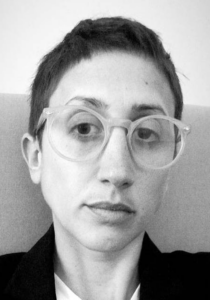 Valeria Kierbel holds a Degree in Psychology and Psychology Teaching at the National University of La Plata (UNLP/ Argentina) and is a Clinical Psychologist since 2011. She is a training candidate at SUAPA/IAAP (Uruguayan-Argentinean Society of Analytical Psychology) for Jungian Analyst and Founding member of the activist collective Lesbianas Junguianas and Fuga Magazine along with colleagues Andy Arocha (Uruguay), Fran Ruggiero (Perú) and Carolina Guíñez (Chile). Valeria teaches Historia de la psicología y del psicoanálisis en Argentina” [“History of Psychology and Psychoanalysis in Argentina”] at the University of La Plata since 2010; and “Género y sexualidad en la psicología junguiana” [“Gender and sexualities in Jungian psychology”] at de University of Córdoba, Post-graduate certificate in Jungian Psychotherapy since 2020. She is a teacher of the online updating course on Jungian Psychology “Géneros, sexos y feminismos: la psicología junguiana interceptada” [“Genders, bodies, feminisms: Analytical Psychology Intercepted”], since 2020. This course is carried out along with Carolina Guíñez (author of the book Ser lesbiana, un camino de individuación [Being a Lesbian, a path of individuation], RIL ed.).
Valeria Kierbel holds a Degree in Psychology and Psychology Teaching at the National University of La Plata (UNLP/ Argentina) and is a Clinical Psychologist since 2011. She is a training candidate at SUAPA/IAAP (Uruguayan-Argentinean Society of Analytical Psychology) for Jungian Analyst and Founding member of the activist collective Lesbianas Junguianas and Fuga Magazine along with colleagues Andy Arocha (Uruguay), Fran Ruggiero (Perú) and Carolina Guíñez (Chile). Valeria teaches Historia de la psicología y del psicoanálisis en Argentina” [“History of Psychology and Psychoanalysis in Argentina”] at the University of La Plata since 2010; and “Género y sexualidad en la psicología junguiana” [“Gender and sexualities in Jungian psychology”] at de University of Córdoba, Post-graduate certificate in Jungian Psychotherapy since 2020. She is a teacher of the online updating course on Jungian Psychology “Géneros, sexos y feminismos: la psicología junguiana interceptada” [“Genders, bodies, feminisms: Analytical Psychology Intercepted”], since 2020. This course is carried out along with Carolina Guíñez (author of the book Ser lesbiana, un camino de individuación [Being a Lesbian, a path of individuation], RIL ed.).
George Taxidis
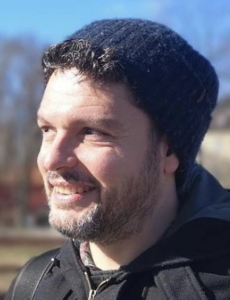 George Taxidis is a Jungian analyst in private practice in east London, UK and a lecturer in psychotherapy and psychosocial studies at Goldsmiths, University of London. He was the co-founder of the International Queer Jungian Initiative, and is currently writing a book on queering Jungian psychology for the Routledge series Jung, Politics and Culture.
George Taxidis is a Jungian analyst in private practice in east London, UK and a lecturer in psychotherapy and psychosocial studies at Goldsmiths, University of London. He was the co-founder of the International Queer Jungian Initiative, and is currently writing a book on queering Jungian psychology for the Routledge series Jung, Politics and Culture.
David Hewison
 Dr David Hewison is a Jungian Training Analyst from the Society of Analytical Psychology in London, UK. He holds a Doctorate in Couple Psychoanalytic Psychotherapy and has recently retired from Tavistock Relationships after 26 years of work. A Consultant Couple Psychoanalytic Psychotherapist and psychotherapy researcher, he developed and led a research-based post-qualifying doctoral programme in Couple Psychotherapy as well as running and teaching on the organisation’s 4-year clinical training in Couple Psychoanalytic Psychotherapy. He developed a model of couple therapy that is used in the UK National Health Service as a treatment for depression and has published many papers on couple and individual psychoanalysis and Jungian analysis, with a particular interest in creativity. He teaches and lectures internationally and has a part-time private practice of clinical work and supervision.
Dr David Hewison is a Jungian Training Analyst from the Society of Analytical Psychology in London, UK. He holds a Doctorate in Couple Psychoanalytic Psychotherapy and has recently retired from Tavistock Relationships after 26 years of work. A Consultant Couple Psychoanalytic Psychotherapist and psychotherapy researcher, he developed and led a research-based post-qualifying doctoral programme in Couple Psychotherapy as well as running and teaching on the organisation’s 4-year clinical training in Couple Psychoanalytic Psychotherapy. He developed a model of couple therapy that is used in the UK National Health Service as a treatment for depression and has published many papers on couple and individual psychoanalysis and Jungian analysis, with a particular interest in creativity. He teaches and lectures internationally and has a part-time private practice of clinical work and supervision.
Dr Paul Attinello
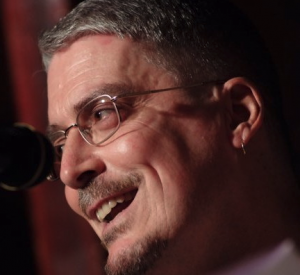 Paul Attinello is a diplomate analyst who studied at the C. G. Jung-Institut in Zürich, as well as a senior lecturer at Newcastle University. He has taught at the University of Hong Kong and as a guest professor at UCLA, received his PhD from UCLA, and has lived and worked on four continents. He has published in a number of journals, collections and reference works on contemporary musics, HIV/AIDS, and cultural, philosophical and psychological topics.
Paul Attinello is a diplomate analyst who studied at the C. G. Jung-Institut in Zürich, as well as a senior lecturer at Newcastle University. He has taught at the University of Hong Kong and as a guest professor at UCLA, received his PhD from UCLA, and has lived and worked on four continents. He has published in a number of journals, collections and reference works on contemporary musics, HIV/AIDS, and cultural, philosophical and psychological topics.
Ruth Williams
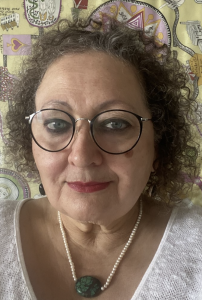 Ruth Williams is a Training and Supervising Analyst at the Association of Jungian Analysts in London. She is the author of Jung: The Basics (2019 Routledge) and Exploring Spirituality from a Post-Jungian Perspective: Clinical and Personal Reflections (Routledge forthcoming 2023). See: www.RuthWilliams.org.uk.
Ruth Williams is a Training and Supervising Analyst at the Association of Jungian Analysts in London. She is the author of Jung: The Basics (2019 Routledge) and Exploring Spirituality from a Post-Jungian Perspective: Clinical and Personal Reflections (Routledge forthcoming 2023). See: www.RuthWilliams.org.uk.
Prof. Luke Hockley
 Luke Hockley (PhD), is Professor Emeritus of the University of Bedfordshire and Honorary Professor at the University of Essex in the Department of Psychosocial and Psychoanalytic Studies. For over a decade he was joint Editor in Chief of the International Journal of Jungian Studies. He is currently Vice President of the Jungian Society for Scholarly Studies and sits on the Board of the Society’s Journal. Luke is editor and author of nine books and numerous chapters and articles. He is a registered Psychotherapist in the UK and lives in the countryside north of London. www.lukehockley.com
Luke Hockley (PhD), is Professor Emeritus of the University of Bedfordshire and Honorary Professor at the University of Essex in the Department of Psychosocial and Psychoanalytic Studies. For over a decade he was joint Editor in Chief of the International Journal of Jungian Studies. He is currently Vice President of the Jungian Society for Scholarly Studies and sits on the Board of the Society’s Journal. Luke is editor and author of nine books and numerous chapters and articles. He is a registered Psychotherapist in the UK and lives in the countryside north of London. www.lukehockley.com
Dr Mark Saban
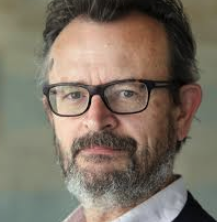
Mark Saban, P.h.D, is a senior Jungian analyst (a member of the Independent Group of Analytical Psychologists) and a lecturer in Jungian and post-Jungian studies in the Department of Psychosocial and Psychoanalytic Studies, Essex University. He recently co-edited Analysis and Activism – Social and Political Contributions of Jungian Psychology, Ed. Emilija Kiehl, Mark Saban, & Andrew Samuels (Routledge) 2016 (Finalist American Board and Academy of Psychoanalysis Book Prize, Nominated Gradiva Award for Best Edited Book). Recent articles include, Jung, Winnicott and the divided psyche, Journal of Analytical Psychology, 2016, 61, 3, 329–349 and Secrete e Bugie. Un’area cieca nella psycologia junghiana, Rivista di psicologia analitica, 2017, n. 43 Volume 95.His website http://www.marksaban.co.uk/.
Dr Verena Kast
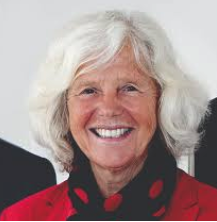 Dr. Verena Kast was Professor of Psychology at the University of Zurich and is a training analyst, supervisor and lecturer at the C.G. Jung, Institute of Zurich, Küsnacht. She is president of the Curatorium. Author of numerous books among others: The Dynamics of Symbols (1990), Father-Daughter, Mother-Son (1994), Letting go and finding yourself (1994). For more information visit her website https://www.verena-kast.ch/.
Dr. Verena Kast was Professor of Psychology at the University of Zurich and is a training analyst, supervisor and lecturer at the C.G. Jung, Institute of Zurich, Küsnacht. She is president of the Curatorium. Author of numerous books among others: The Dynamics of Symbols (1990), Father-Daughter, Mother-Son (1994), Letting go and finding yourself (1994). For more information visit her website https://www.verena-kast.ch/.
Mary-Jane Rust
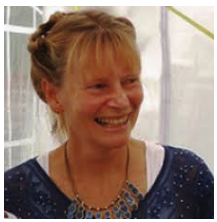 Mary-Jayne Rust is an eco-psychotherapist, inspired by trainings in art therapy, feminist psychotherapy and Jungian analysis. Journeys to Ladakh (on the Tibetan plateau) in the early 1990’s alerted her to the seriousness of the ecological crisis, and its cultural, economic and spiritual roots. Alongside her therapy practice she runs courses and lectures internationally on ecopsychology, a growing field of inquiry into the psychological dimensions of ecological crisis. Her publications can be found on www.mjrust.net, including Vital Signs: Psychological Responses to Ecological Crisis. Eds M.J. Rust & Nick Totton. Karnac, London 2011. She weaves together the ecological, psychological, political, and spiritual aspects of the earth and its people, with a keen interest in the differences between indigenous and western worldviews, and how we might enable ancient and modern to live together today. She grew up beside the sea and is wild about swimming. Now she lives and works beside ancient woodland in North London. For more information visit her site http://www.mjrust.net/.
Mary-Jayne Rust is an eco-psychotherapist, inspired by trainings in art therapy, feminist psychotherapy and Jungian analysis. Journeys to Ladakh (on the Tibetan plateau) in the early 1990’s alerted her to the seriousness of the ecological crisis, and its cultural, economic and spiritual roots. Alongside her therapy practice she runs courses and lectures internationally on ecopsychology, a growing field of inquiry into the psychological dimensions of ecological crisis. Her publications can be found on www.mjrust.net, including Vital Signs: Psychological Responses to Ecological Crisis. Eds M.J. Rust & Nick Totton. Karnac, London 2011. She weaves together the ecological, psychological, political, and spiritual aspects of the earth and its people, with a keen interest in the differences between indigenous and western worldviews, and how we might enable ancient and modern to live together today. She grew up beside the sea and is wild about swimming. Now she lives and works beside ancient woodland in North London. For more information visit her site http://www.mjrust.net/.
Dr Mark Winborn
 Mark Winborn, PhD is a Jungian psychoanalyst and clinical psychologist. He is a training analyst with the Inter-Regional Society of Jungian Analysts and the C.G. Jung Institute Küsnacht. His primary areas of interest are analytic technique and the integration of psychoanalytic theories. He has published or edited five books: Deep Blues: Human Soundscapes for the Archetypal Journey, Shared Realities: Participation Mystique and Beyond, Interpretation in Jungian Analysis: Art and Technique, Beyond Persona: On Individuation and Beginnings with Jungian Analysts (with Lavinia Țânculescu), and Jungian Psychoanalysis: A Contemporary Introduction (part of the Routledge series – Introductions to Contemporary Psychoanalysis), as well as numerous articles and book chapters. He received the Gradiva prize from the National Association for the Advancement of Psychoanalysis for the best article published in 2022 and was a finalist in 2014 for the best edited book in psychoanalysis. He lectures widely both in the USA and internationally.
Mark Winborn, PhD is a Jungian psychoanalyst and clinical psychologist. He is a training analyst with the Inter-Regional Society of Jungian Analysts and the C.G. Jung Institute Küsnacht. His primary areas of interest are analytic technique and the integration of psychoanalytic theories. He has published or edited five books: Deep Blues: Human Soundscapes for the Archetypal Journey, Shared Realities: Participation Mystique and Beyond, Interpretation in Jungian Analysis: Art and Technique, Beyond Persona: On Individuation and Beginnings with Jungian Analysts (with Lavinia Țânculescu), and Jungian Psychoanalysis: A Contemporary Introduction (part of the Routledge series – Introductions to Contemporary Psychoanalysis), as well as numerous articles and book chapters. He received the Gradiva prize from the National Association for the Advancement of Psychoanalysis for the best article published in 2022 and was a finalist in 2014 for the best edited book in psychoanalysis. He lectures widely both in the USA and internationally.
TESTIMONIALS
It’s time for module 11 of my Jungian and Post Jungian clinical concepts course. This one is about dreams and active imagination. The course started in May of last year and has been both fascinating and brilliant. The course ends in May with the final module on the Political Pdyche by Professor Andrew Samuel’s. What a year its been . I couldn’t recommend the Centre for Applied Jungian Studies more highly.
Martyn Shrewsbury
Thank you for such a wonderful opportunity to hear all the lecturers! You picked up the best! I am the president of Russian Society for Analytical Psychology and attended this course with an idea to compare the level of education we give in Russia with the international. I’m really satisfied with what I got with your course. Thank you again for this wonderful experience! And good luck to you and the centre!
Natalia Pavlikova (Russia)
Really enjoyed the course. The course content and webinars were demanding but appeared to be of the highest quality. Feel I am bit wiser now.
Tony Reilly (UK)
It has been a wonderful experience. Thank you all for each month of knowledge and incredible insights .
Susana Munaux (Mexico)
I would like to thank you for setting up and running this online course. It has been a wonderful learning opportunity and really enjoyed delving deep into Jungian psychology. it was great to learn from the best authors and practitioners worldwide. It definitely added much value to my practice as coach and career counsellor.
Anne Robert (Mauritius)
A warm and grateful “THANK YOU” for your work, to all Professor and teacher. I had much pleasure deepening my understanding of Jungian thoughts.
Denis Casarsa (Koh Samui)
I have really enjoyed the course and valued the quality of the seminar presentations. I have had an opportunity to extend and deepen my understanding. Thank you to all involved .
Sally Dhruev (UK)
This course was a deeply enriching experience for me.
Valeria Almada (Mexico)
This course was truly rich and I benefited greatly from it. It had really good material and lecturers, and I loved how they covered so many different aspects of such work.
Carli Castellani (US)
I don’t think I would of had access to this wealth of information by experts from around the world if it had not been for this opportunity. I have been interested in Jungian analysis and would like to peruse it but it’s really challenging finding the right route. I feel inspired and have all this knowledge from the course.
Thanks again not only for the contents but making it affordable and available online!
Stacey Coconas (South Africa)
Thank you very much and Congrats to CAJS for the wonderful course.
Juliana Navarro (Rio de Janeiro)
Thank you so much Anja- it’s been a brilliant course- very enjoyable, stimulating and informative.
Linda-Mary Edwards (UK)
Thanks again for putting together such an interesting course that really informs about key concepts of Jungian thought from a contemporary perspective.
Catriona MacInnes

